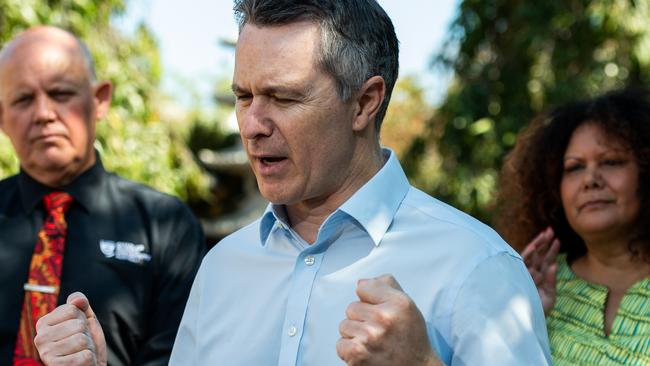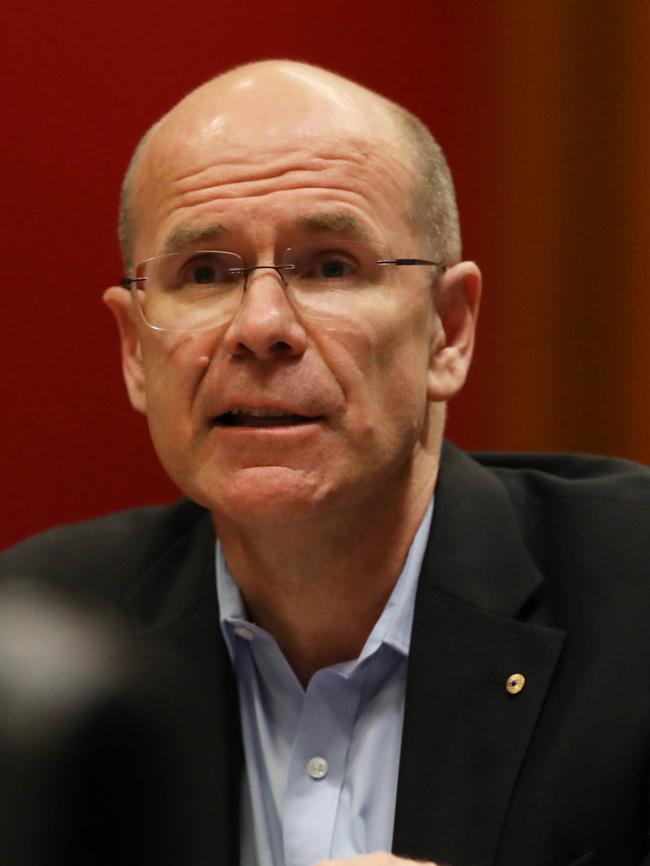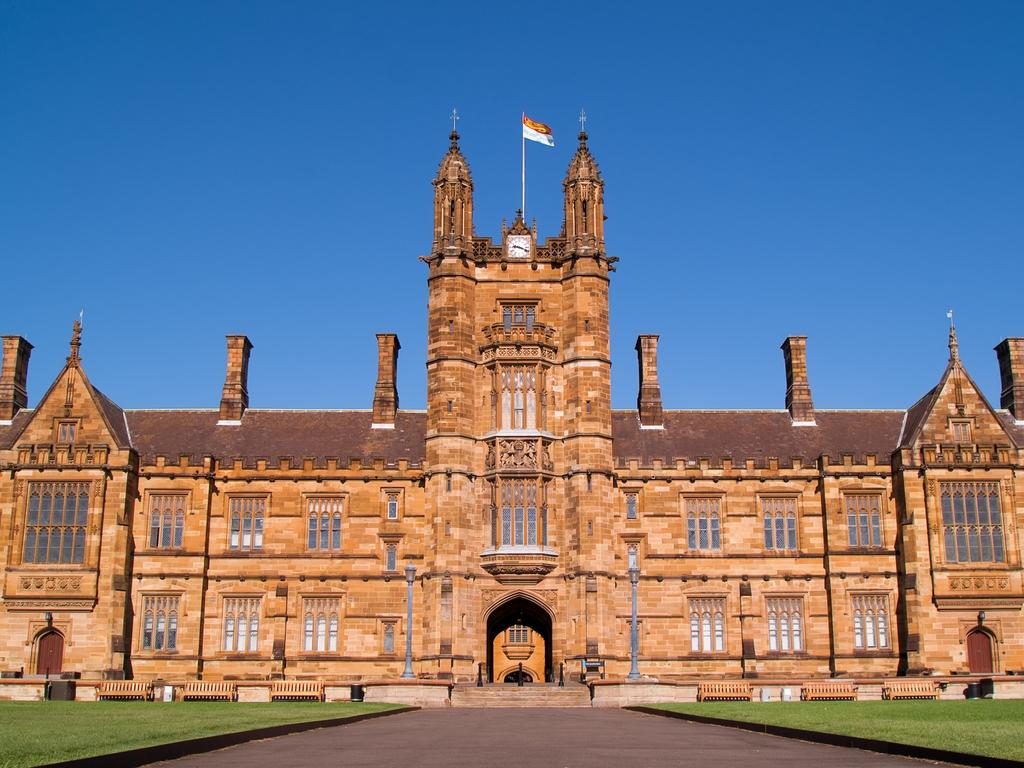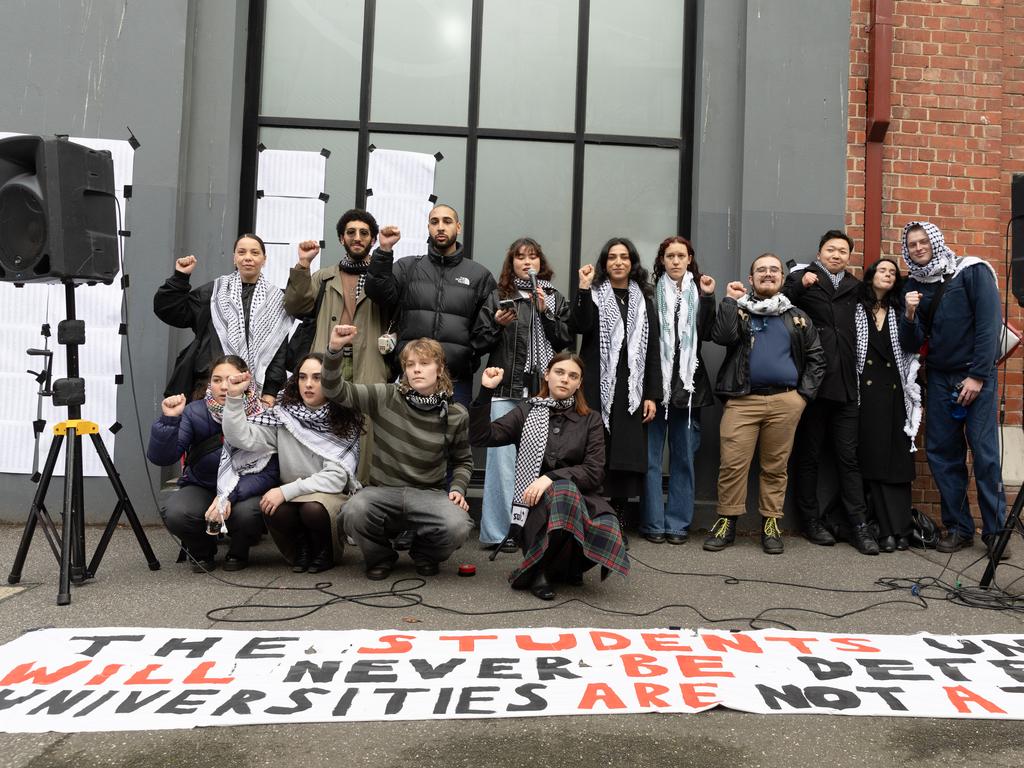Universities’ Senate plea: ‘Don’t be bullied’
Jason Clare has flagged on-the-run reforms to his contentious cuts to international student numbers, after a backlash from business and a plea from universities for the Senate not to be ‘bullied’ into waving through the changes.

You can now listen to The Australian's articles. Give us your feedback.
Jason Clare has flagged on-the-run reforms to his contentious cuts to international student numbers, after a backlash from business and a plea from universities for the Senate not to be “bullied” into waving through the changes.
The Albanese government has buckled to voter concern over high immigration by capping the foreign student intake to 270,000 next year, in a move blasted by universities and business leaders.
In a pre-election policy that targets Chinese students in overcrowded Sydney and Melbourne, the federal Education Minister will prevent 22,000 international students from starting study at the nation’s wealthiest universities next year, a move it claims could cost them $1bn in revenue.
However, Mr Clare flagged he was prepared to change his legislation to ensure its passage through a hostile Senate this year.
“I do think that there are ways that we can improve this bill, and when it comes before the Senate there will be an opportunity to do that, based on the feedback from universities,’’ he said.
The complex and controversial cuts reflect growing community resentment over record numbers of international students living in Australia at a time when local residents are struggling to find affordable housing.
But the Group of Eight (Go8) universities – where foreign students make up one-third to half of enrolments – condemned the clampdown as “reckless” and will lobby the Coalition and Greens to block the legislation in the Senate.
Go8 executive director Vicki Thomson said the government was “punishing the universities that have proven to be the most popular for the very best global students’’.
“The Go8 encourages the Senate in the strongest possible terms to not allow the government to bully it into passing legislation through the public announcement of caps,’’ Ms Thomson said.
The Greens are likely to vote against the legislation, while the Coalition said it “welcomes student caps and will examine the detail’’. In a joint statement, opposition education spokeswoman Sarah Henderson and immigration spokesman Dan Tehan said the caps were the result of “Labor’s immigration mess”, which had placed “unprecedented cost-of-living and housing pressures on Australians’’.
“Under Labor’s Big Australia, the number of foreign students coming to the country has more than doubled … (with) 500,000 international students forced into the private rental market,’’ the Coalition frontbenchers said.
Mr Clare on Tuesday announced a “national planning level’’, which will also slash enrolments at private training colleges, to “strengthen the integrity of the sector and ensure it maintains its social licence’’.
The Business Council of Australia warned that the arbitrary caps would limit the growth of Australia’s fourth-largest export sector at a time when the economy was stalling.
“These caps will damage the economy and reduce economic growth,” BCA chief executive Bran Black said on Tuesday.
“International students are worth $48bn to our economy and in March 2024 accounted for almost a quarter of GDP growth.

“The debate around student caps has been a knee-jerk reaction to a housing crisis that has come about from poor planning and a lack of co-ordination across all levels of government.’’
Universities Australia chairman David Lloyd, who is vice-chancellor of the University of South Australia, said the government-imposed limits would “apply a handbrake’’ to the industry. “International student fees help drive Australia’s economy and support universities to operate, making up a shortfall in government funding for research, teaching and campus infrastructure,’’ Professor Lloyd said. “We acknowledge the government’s right to control migration numbers, but this should not be done at the expense or any one sector, particularly one as economically important as education’’.
While the wealthiest universities will have their numbers cut by 22,000 next year, regional universities will be allowed to enrol nearly 7000 additional students.
University of Melbourne vice-chancellor Duncan Maskell said the cap “will harm all students’’.
“The cap on international students will have detrimental consequences for our university, the higher education sector generally, and the nation for years to come,’’ Professor Maskell said.
“The effects will be felt by students and staff, in terms of inadequate funding to teach and do research, and by industry partners, and there will also be negative effects on the broader economy.’’
He said the government had “no plan to reform research funding’’, which was subsidised by international student revenue.
The total limit of 270,000 commencing students next year in universities and private training colleges will be 16 per cent lower than last year’s intake.
While commencing enrolments for 2024 have yet to be finalised, total enrolments have soared to 810,960 – nearly 20 per cent higher than in 2023.
Preliminary data shows that the Go8 universities enrolled 83,020 commencing students this year, so their 2025 cap of 61,000 represents a loss of 22,020 students – a 27 per cent cut.
Regional universities will be allowed to increase their enrolments by 78 per cent next year, with nearly 7000 extra international students.
International enrolments at regional universities fell 37 per cent this year due to the controversial Ministerial Direction 107 by former home affairs minister Clare O’Neil, which forced her department to prioritise visa applicants from low-risk countries such as China, at the expense of India, Nepal and Pakistan.
Mr Clare said the government would rescind Ministerial Direction 107, conceding it was a “blunt instrument” to reduce student numbers. He said some universities had been “hit hard’’, highlighting the universities of Newcastle, Wollongong, Griffith, Charles Darwin, Tasmania and La Trobe.
“This is about setting the system up in a better and a fairer way, so it’s not just a lucky few universities that benefit from international education but it’s the whole sector,’’ Mr Clare said.
“The level that we’re setting for universities (overall) is about 15 per cent higher than it was before the pandemic. For private vocational providers it will be about 20 per cent less.’’
The Go8 represents the richest universities, including Sydney, Melbourne, NSW, Adelaide, Monash and the Australian National University. Another member is the University of Queensland – which reaped $736m in revenue from its 19,183 international students last year.
Western Sydney University, whose new chancellor George Williams is a constitutional lawyer – warned that enrolment caps would “hurt” the institution.
“We are now expecting almost 1000 fewer international students next year, which translates to a 23 per cent decrease in our forecast for 2025,’’ Professor Williams said. “We expect to lose about $26.5m in revenue next year.’’
Professor Williams said his university’s 9000 international students were not contributing to the housing crisis’. “Many of our international students choose to stay with local families and their relatives, helping to ease cost-of-living pressures,’’ he said.
Mr Clare said cuts were necessary because “shonks’’ had been “making a quick buck’’ from some international students who were using education as a “back door’’ to live in Australia.







To join the conversation, please log in. Don't have an account? Register
Join the conversation, you are commenting as Logout